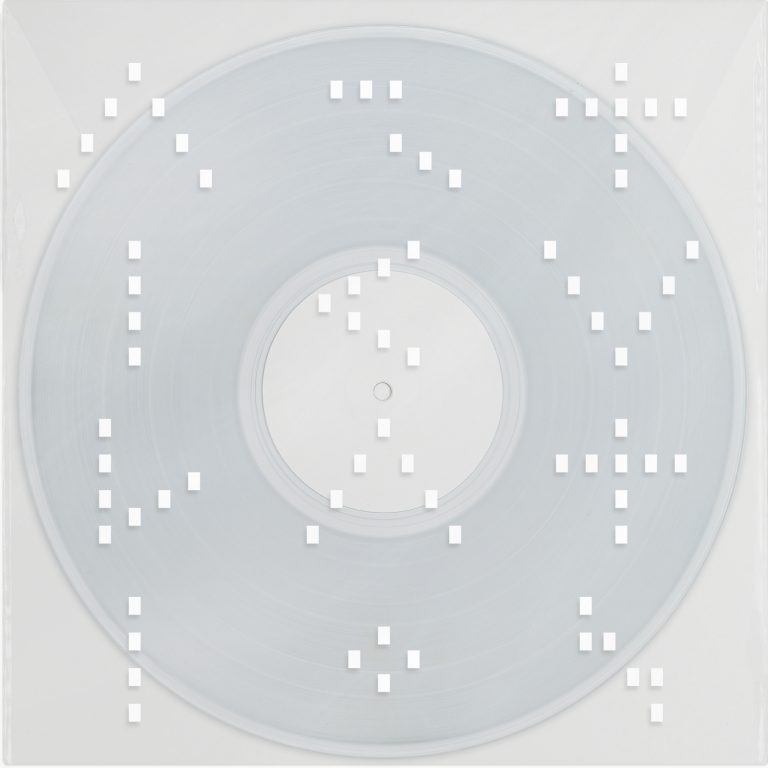Emotional depth is often difficult to achieve in electronic music. The often neutered and sanitised textures of technology obscure the more personal elements at play, distancing artist from motivation. Articulation, Ryan Lee West’s seventh studio album as Rival Consoles, continues his journey from the Daft Punk-influenced dance-for-dance’s-sake elements of 2009’s debut IO to the more cognitive, abstract and often emotionally obfuscating aspects of his more recent work, which saw its natural pinnacle in 2018’s excellent Persona. Over that body of work, Rival Consoles has not only found his own voice, but has uncovered new ways to conjure emotions from machines.
Articulation arrives with a weight of expectation on its shoulders, such was the creative zenith reached by Persona. The two albums can be seen to be companion pieces of one another – Persona is the soundtrack to Rival Consoles’ increasing self-awareness, whereas Articulation is the emboldened move to considered self-expression in the wake of sentience. Fear not, though, dance heads – there are still some bangers here!
“Vibrations on a String” kicks us off with a blurry, disorientated and mutating synth line which feels like new life coming to terms with itself, the first sharp intake of air from a new born contemplating what it has let itself in for. A driving bass drum and skittish percussion joins in, offering a sense of momentum and purpose for the listener. By the time the track re-establishes itself after a midpoint breakdown, the beats have taken over and menacing sounds to the background add an air of apprehension. It is in this balance between tension and motorik-beat-induced euphoria where much of the album exists. “Vibrations on a String” offers us a reminder of the hedonistic allure of the beat, whilst also maintaining the idea that things have changed, perhaps never to return to how things were. This is dance music, but with a consciousness that is not always positive in nature.
The duality between self-indulgence and restraint is strongly pronounced on “Forwardism”, which comes next. It’s the most obviously ‘club’ track here, with huge swells of sound washing over the listener alongside pulsing beats and mutated crescendos everywhere. But there is also a sense of disquiet in the background, a jittery sense of attentive reflection which tempers the potential for complete visceral submission. It’s bloody ace.
Articulation’s impetus is one of temperance rather than sheer exuberance, and this is best exemplified with the placement of “Melodica”, which ends the first half of the record. It’s a beat-less introspective piece of tremulous keyboards and scratchy sounds which come in and out of focus, and feels like a momentary pause to contemplate what has come before. This is Rival Consoles at his most assured, and a pattern emerges when the track is measured against “Memory Arc” from Persona and “Slow Song” from 2016’s Night Melody. All tracks are third on their respective albums, and all offer a desire to shift the aural textures away from the singular vision that much electronic music suffers from. Here on “Melodica”, though, there is a more organic feel to the musicianship and it has echoes of the brilliance of artists such as Harold Budd and Brian Eno. Disappointingly, it’s by far the shortest track on the album, but it does point towards potential avenues of further somnambulant sonic exploration for Ryan Lee West, which is an exciting thought in itself.
After the quiet comes the storm. The album’s title track swells with arpeggiated and intricately weaving melodies that oscillate with tempered rhythms which are sufficiently constraining to ensure the track never veers too far away into overly needless abstraction. “Still Here” has a rising synth line that conjures up images of sunrise and optimism for our collective future.
Album closer “Sudden Awareness of Now” continues this theme by including birdsong in its intro, before enveloping the listener in a trance-esque series of eddying aural waves that are fairly stoic in their resistance to being resolved. It’s essentially one long steady crescendo with layer upon layer of sound being introduced to eventually form a radiant sound collage that refuses to do the obvious and venture outside its ever-increasing circle of noise. In fact, Rival Consoles ends Articulation by steadfastly refusing to play to the crowd, instead of exploding into life like so many tracks before it, “Sudden Awareness of Now” steadily erodes and fades out over its final two minutes.
Articulation balances the sterility of machine commands with the vivacity and pensiveness of the human experience like few other albums in the field have managed. Just at the moment when you feel as if you know where the music is headed it skews in on itself and refuses to accommodate your whims, moving itself to more unconventional spaces in order to breathe and react with themselves, not the needs of others.


